Social Protection in Mauritania: Breaking the Chain of Intergenerational Poverty
Social security development is at the heart of the international agenda. And Mauritania is no exception. In this country, nearly 30% of the population lives below the national poverty line. To tackle this problem, the Mauritanian authorities have launched a project to tackle poverty, called “Tekavoul”, which is being implemented in the regions where poverty is most widespread. This Mauritanian initiative is supported by members of the Sahel Alliance.
The national coordinator of this initiative, Moulaye El Hacen Zeidane Abd El Maleck, was interviewed by Alliance Sahel. He goes over the fundamental aspects of how the Tekavoul programme was created and how it works.
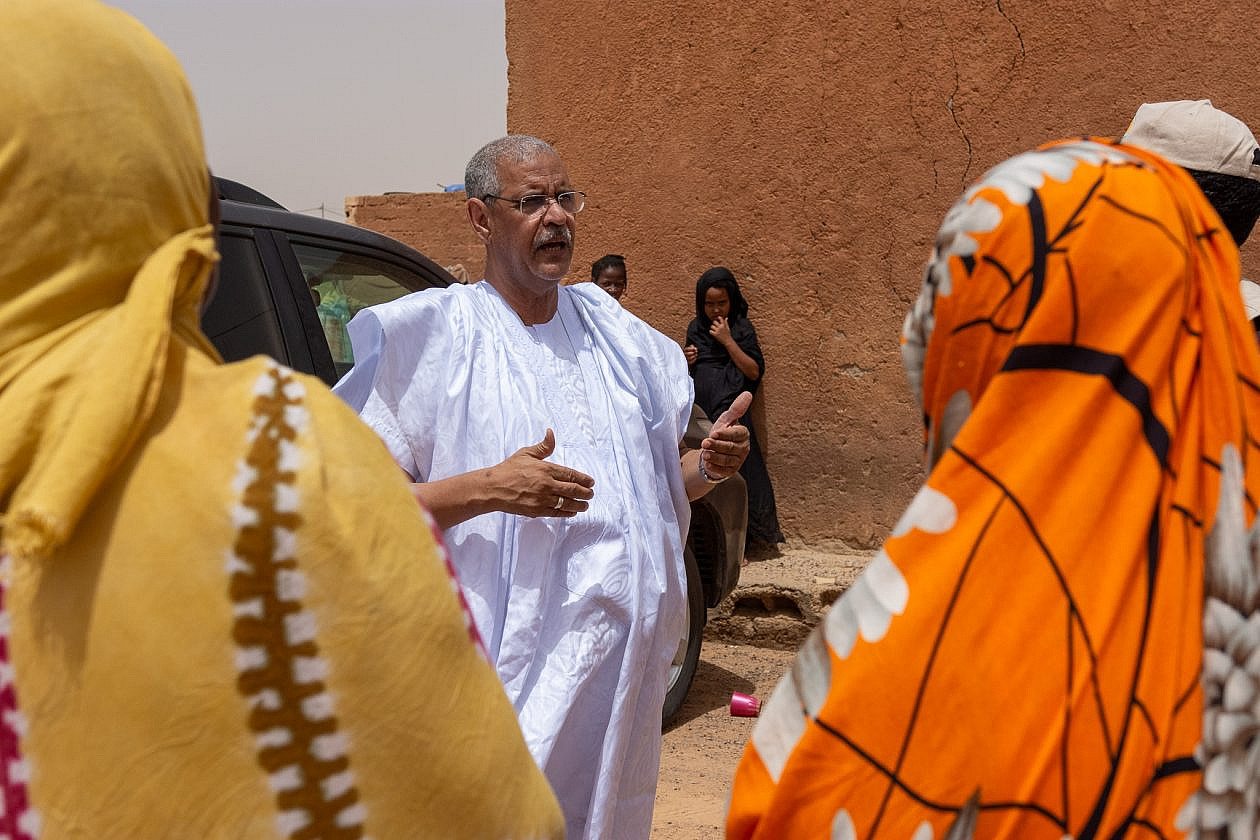
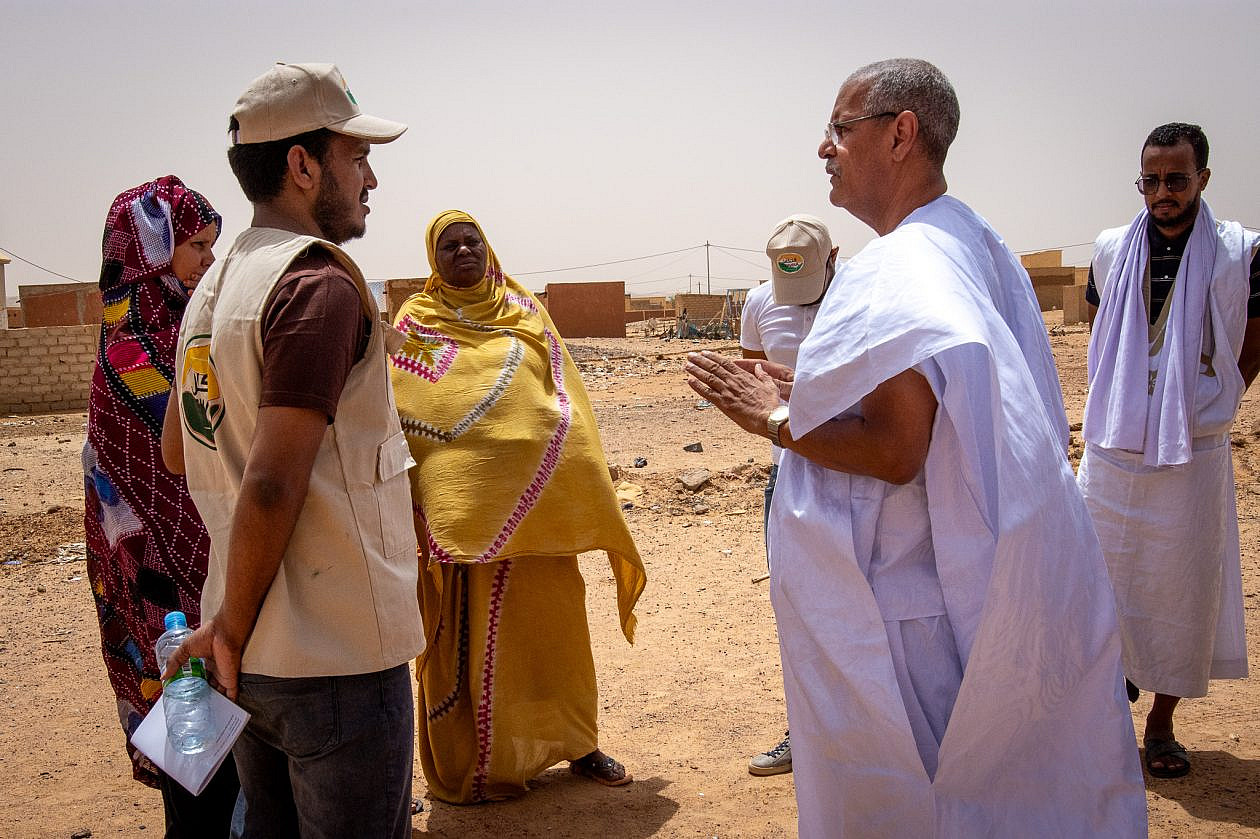
« The authorities wanted an efficient targeting tool that would enable them to avoid financial and material resources from being spread too thinly. The poverty profiles have been determined by permanent surveys of households living conditions carried out every 4 years by the National Statistics Office. A social register has been created based on community targeting: the community itself determines who are the most vulnerable, according to pre-established quotas and criteria.
In urban areas, the approach consists of a general census of the entire population. At the moment, this social register includes over 200,000 households, representing a third of the Mauritanian population, and covers the entire country.
Working with the World Bank and our partners, we began with a target of 35,000 households. The cash transfer was determined on the basis of the household food basket. We settled on an amount that would not push people to be passive and dependent, but would improve their living conditions: 1,500 MRU (37 euros). This amount is transferred to households on a quarterly basis.
The Mauritanian government has decided to scale up the Tekavoul programme nationwide, expanding both horizontally and vertically, increasing the number of beneficiaries to 100,000 households and increasing the amount of the quarterly cash transfer per household from 1,500 to 2,200 in 2021, then 2,900 in 2023 and reaching 3,600 MRU (88 Euros) in 2024.
To get the money to the beneficiary families, we work with local payment operators who are supported by teams of facilitators from our programme. We are obligated to bring the cash transfer to citizens within a radius of less than 5 kilometres of their home, regardless of where the household is located. To achieve this, we have a set of specifications with a payment operator selected in complete transparency.
Over 90% of the recipient of the programme are women. We want the funds to be transferred to the person who is most involved in the children’s education. »
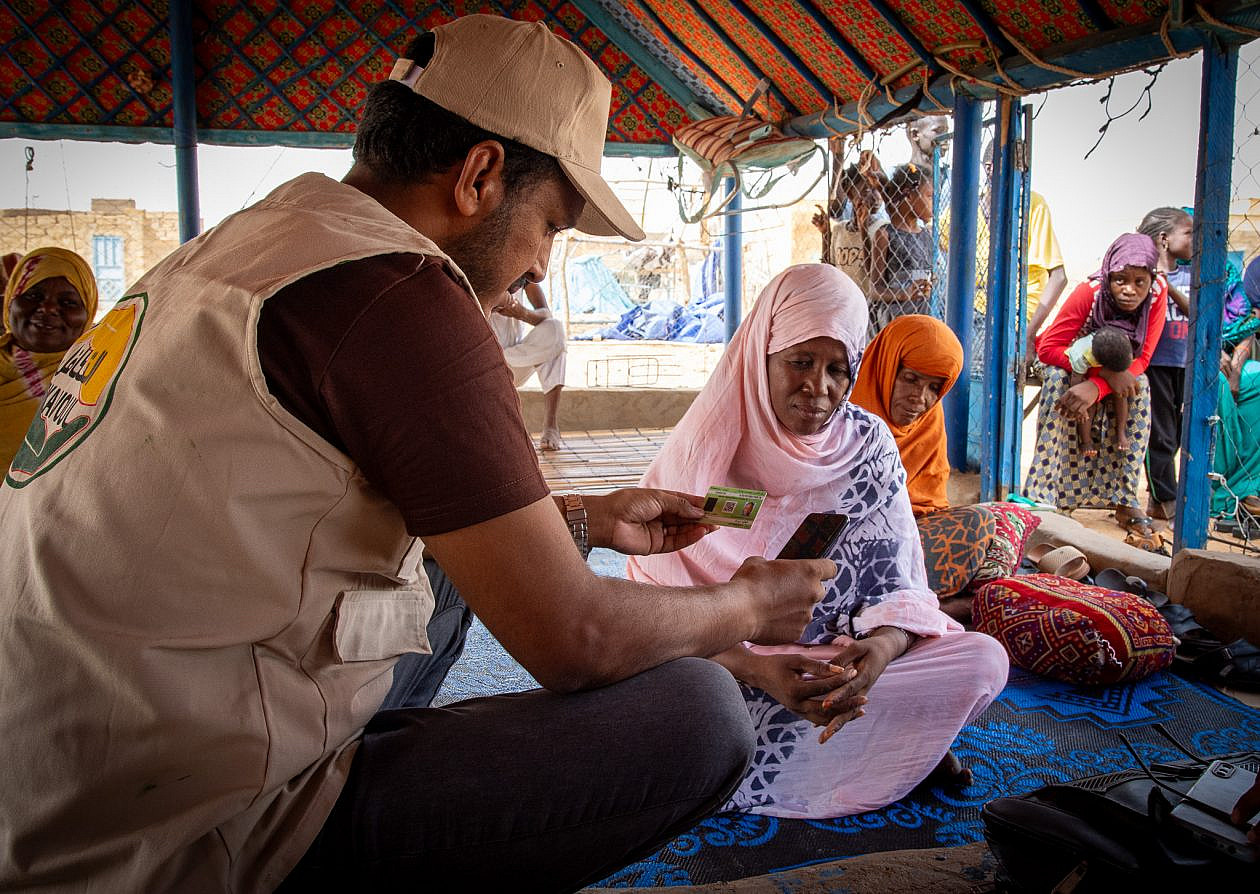
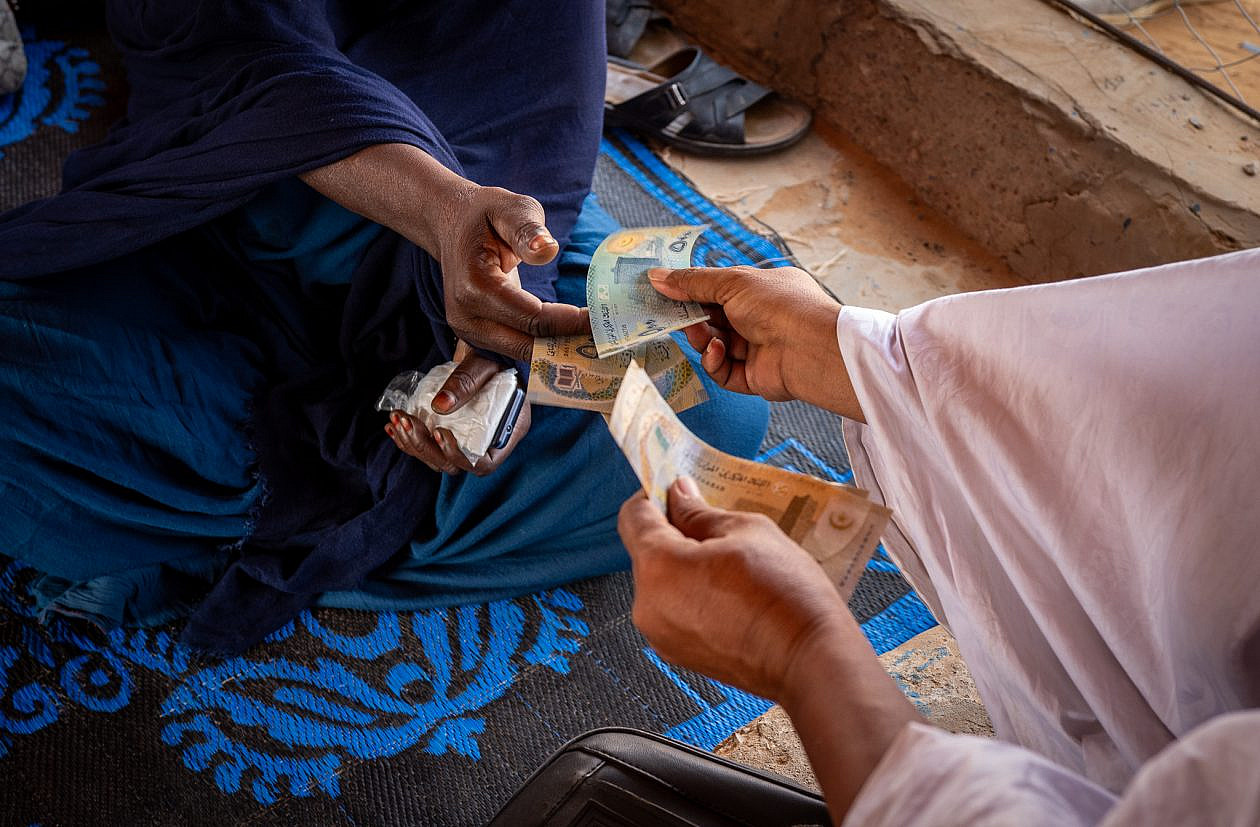
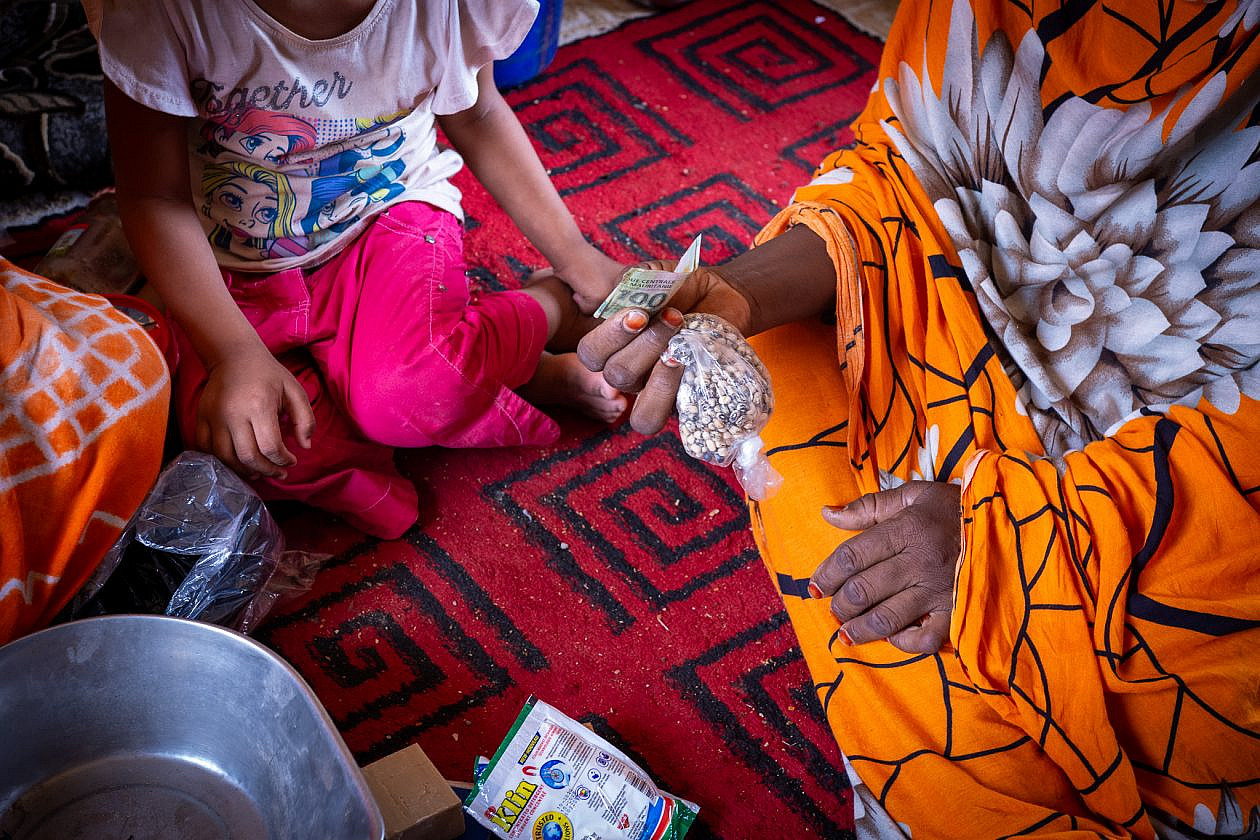
Objective: Break the Chain of Intergenerational Poverty
« The criteria for becoming a beneficiary are fair, equitable and transparent. Citizens feel that there is transparency and justice, as well as assistance that reduces their daily suffering and difficulties.
Each time money is transferred to the communities, the beneficiaries are invited to social promotion meetings. These meetings are the key to changing attitudes and habits. They are the only condition for the cash transfer to be executed: beneficiaries must participate in order to receive their quarterly transfer.
During the social promotion meetings, we exchange on a range of topics with the beneficiaries: breastfeeding, nutrition, medical check-ups, hygiene, sanitation, children development and rights – anything that relates to people’s daily lives and can improve best practices to have a positive impact on their lives.
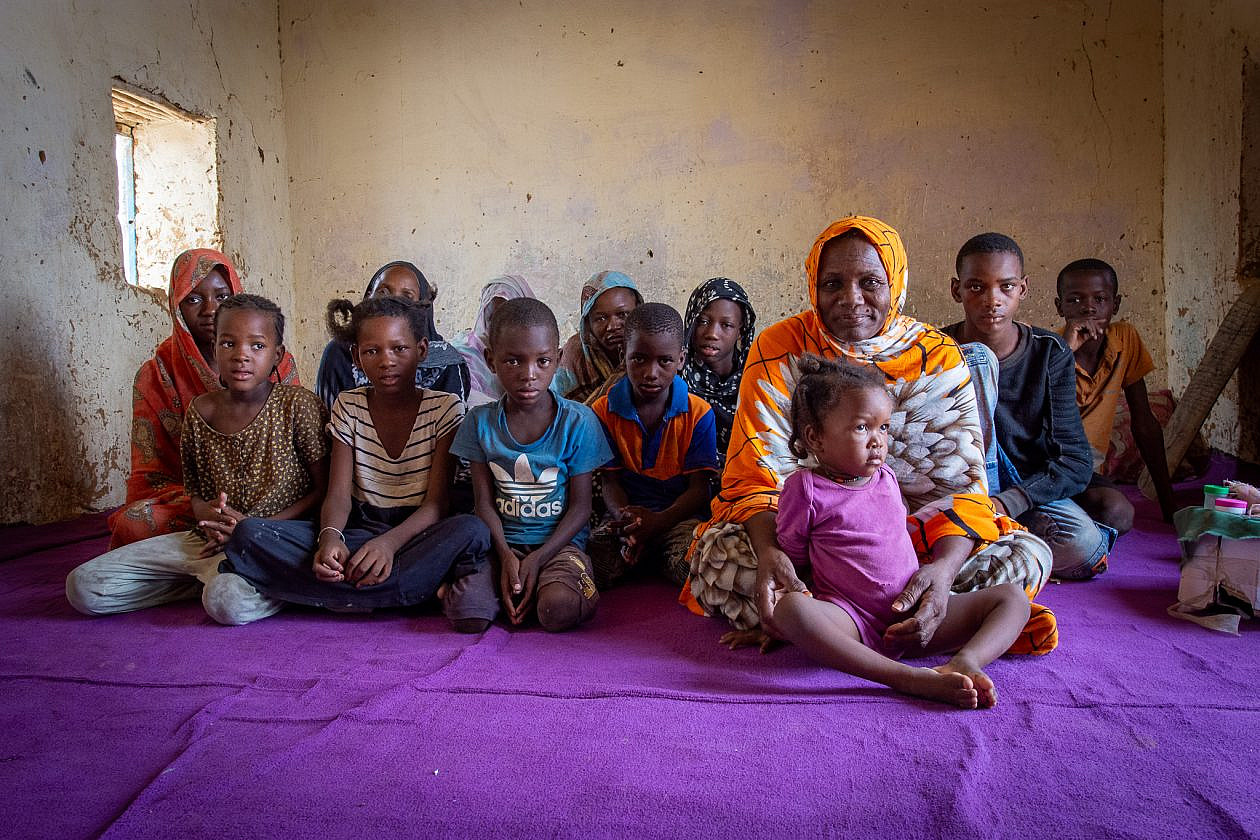
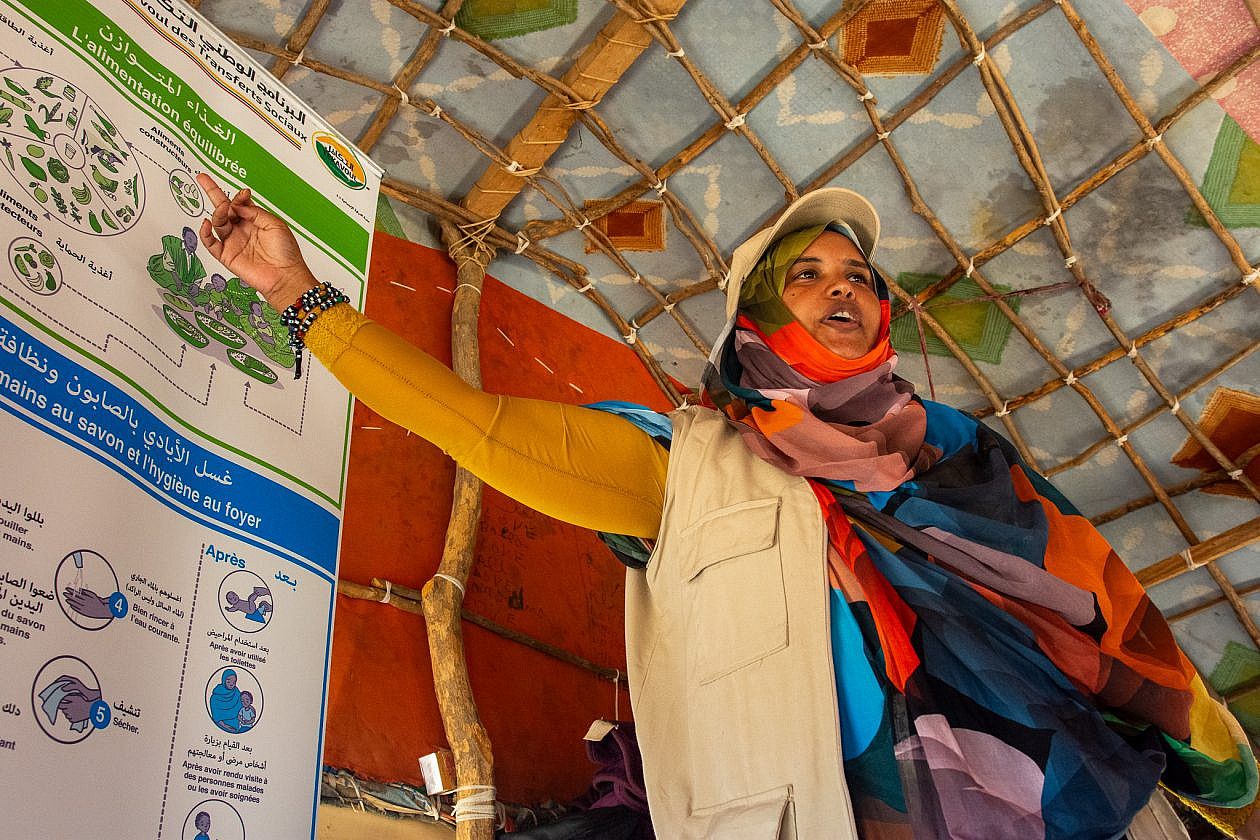
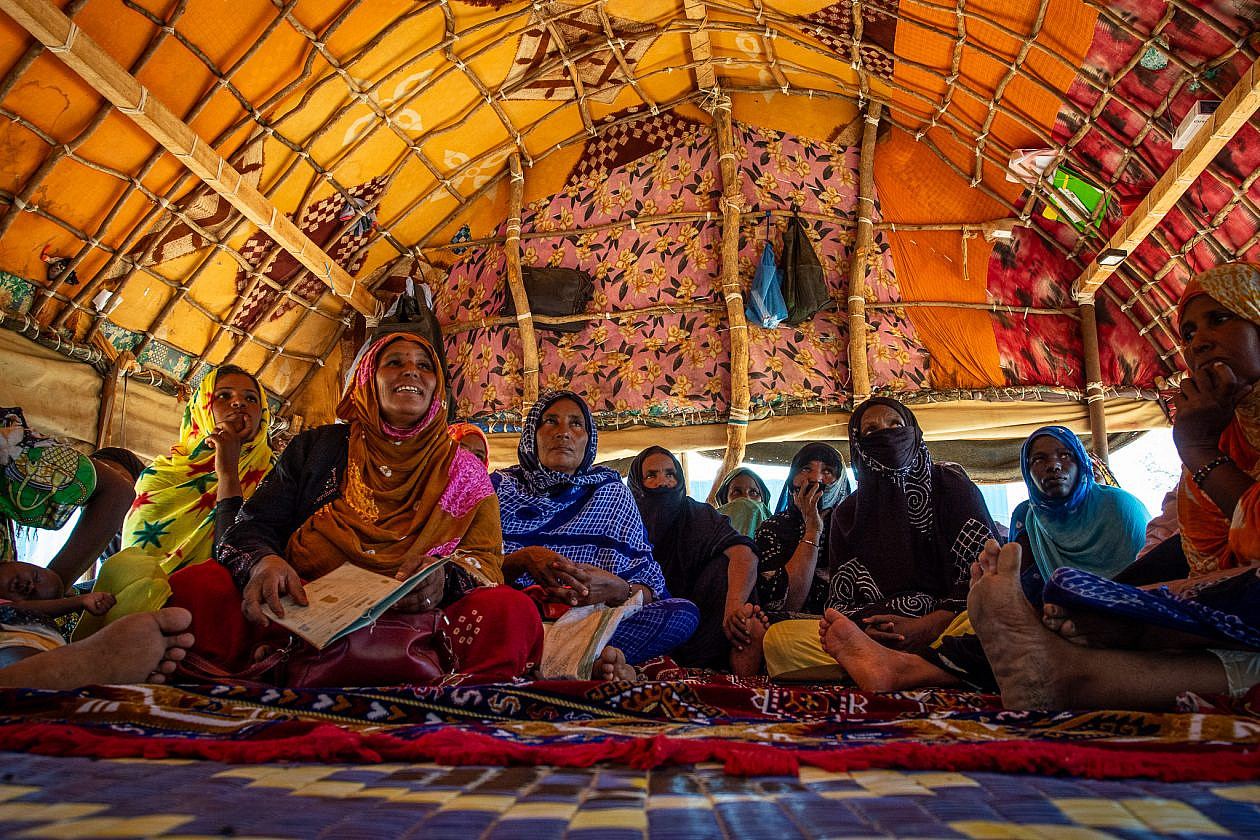
The State noted that the social safety net programme has had a positive impact on the local economy and the behaviour of beneficiaries. Today, the State covers 73% of Tekavoul’s cash transfer from its budget.
In addition to the cash transfer, beneficiaries benefit from 100% free general health insurance. Over 600,000 people are covered by the State under this scheme.
In addition, in times of hunger or external shocks, the State supports the affected populations through the El Maouna component. During the Covid-19 pandemic, over 210,000 households received assistance. Last year, 3,000 households affected by flooding received assistance in Nouakchott and over 500 in the wilaya of Inchiri among others. »
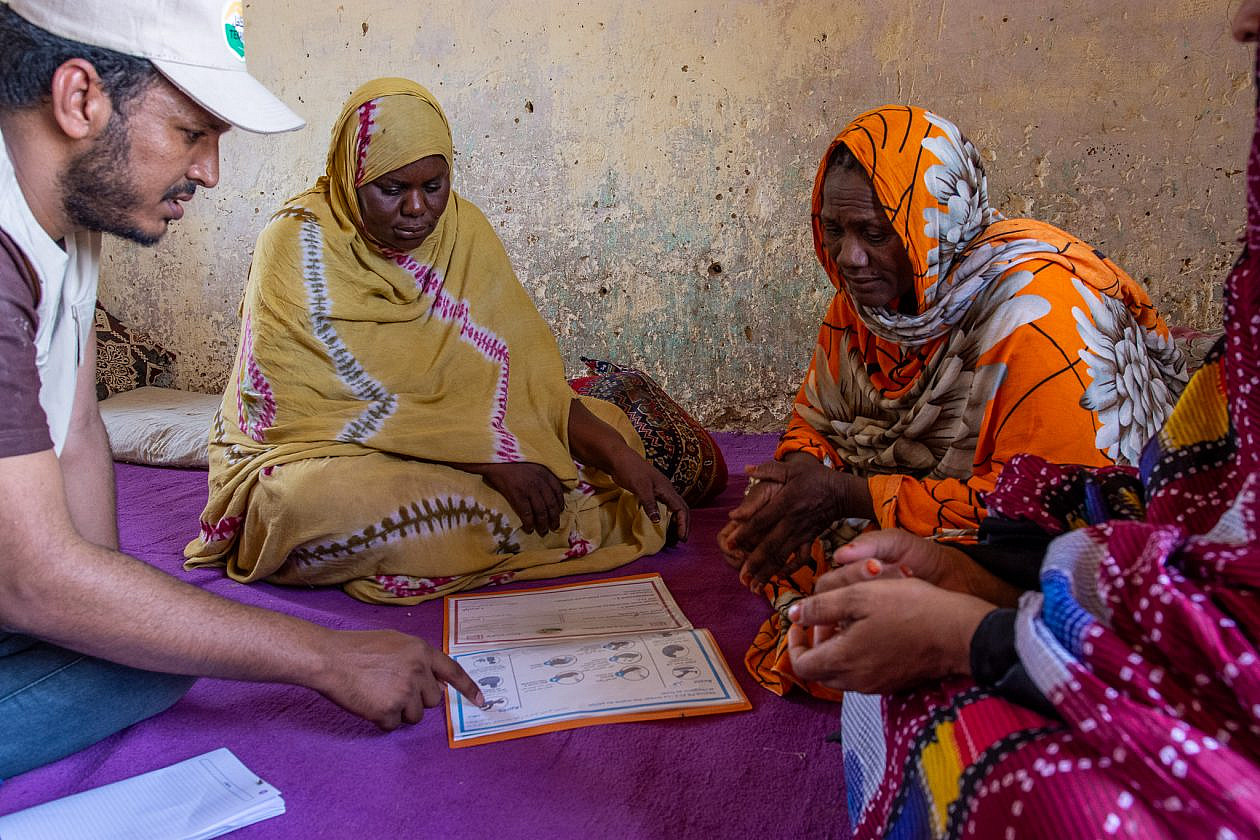
Hodh Charqui : Refugees Also Benefit From Tekavoul
« Following the positive results of the project, the State decided to support projects in the wilaya of Hodh Charqui, which was not covered by the initial project. This region is home to many refugees from Mali. A “refugee” window has been included in the project funding and is supported in particular by members of the Sahel Alliance.
Refugees are identified by the social register in collaboration with the UNHCR and entered into the database. »
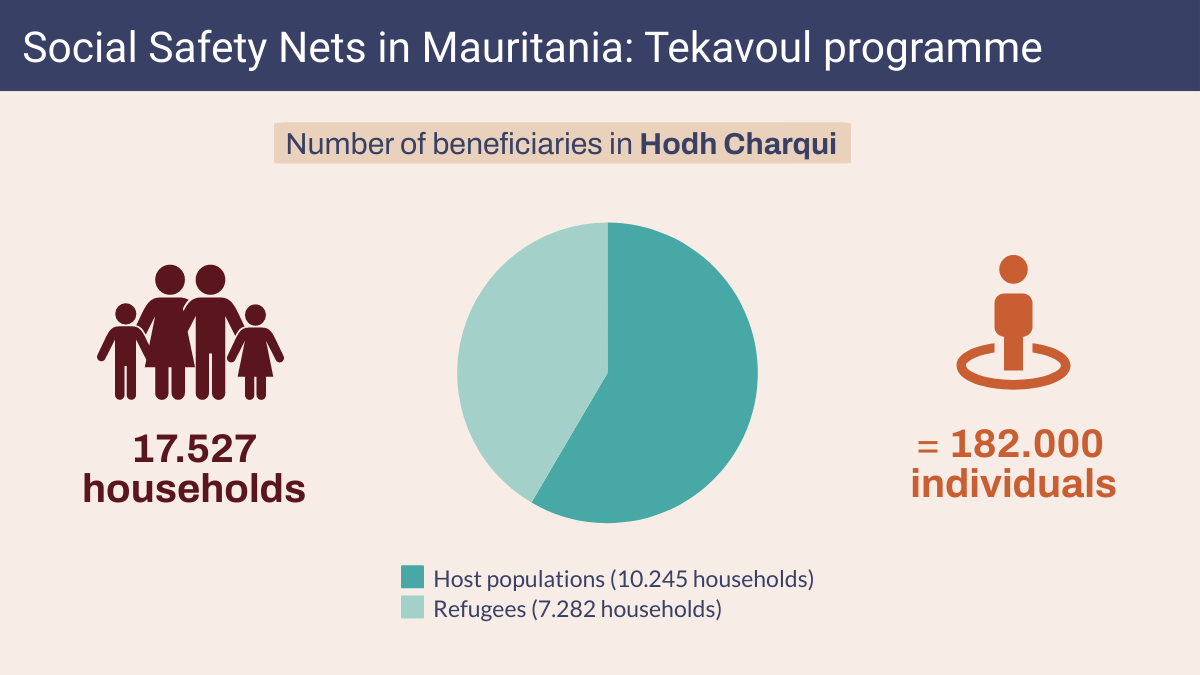
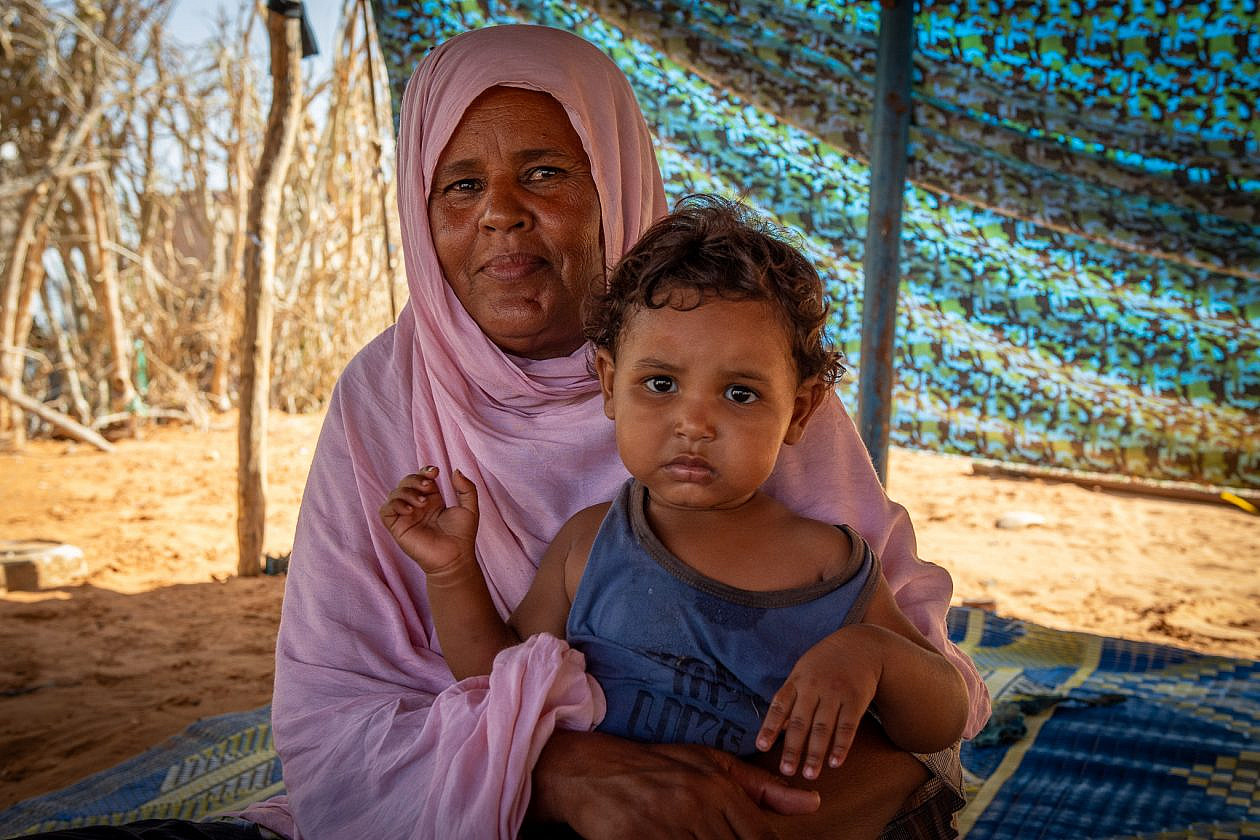
Testimony of Fatma Walet Elmehdi, refugee in the Mbera camp
« I live in the Mbera camp with my 2 daughters and my granddaughter. Life is very difficult here, and basic necessities are expensive, but I try to organise myself to provide for the family. Through the awareness-raising meetings, I realised that lentils are rich in vitamins and can replace meat and milk… We are nomad people and we are used to eating meat and dairy products, so we didn’t know about all the cereals and leguminous plants.
Every time I receive cash, the first thing I buy is soap, because I realised that in an environment like the Mbera camp, where germs proliferate and diseases can spread, hygiene is very important. »
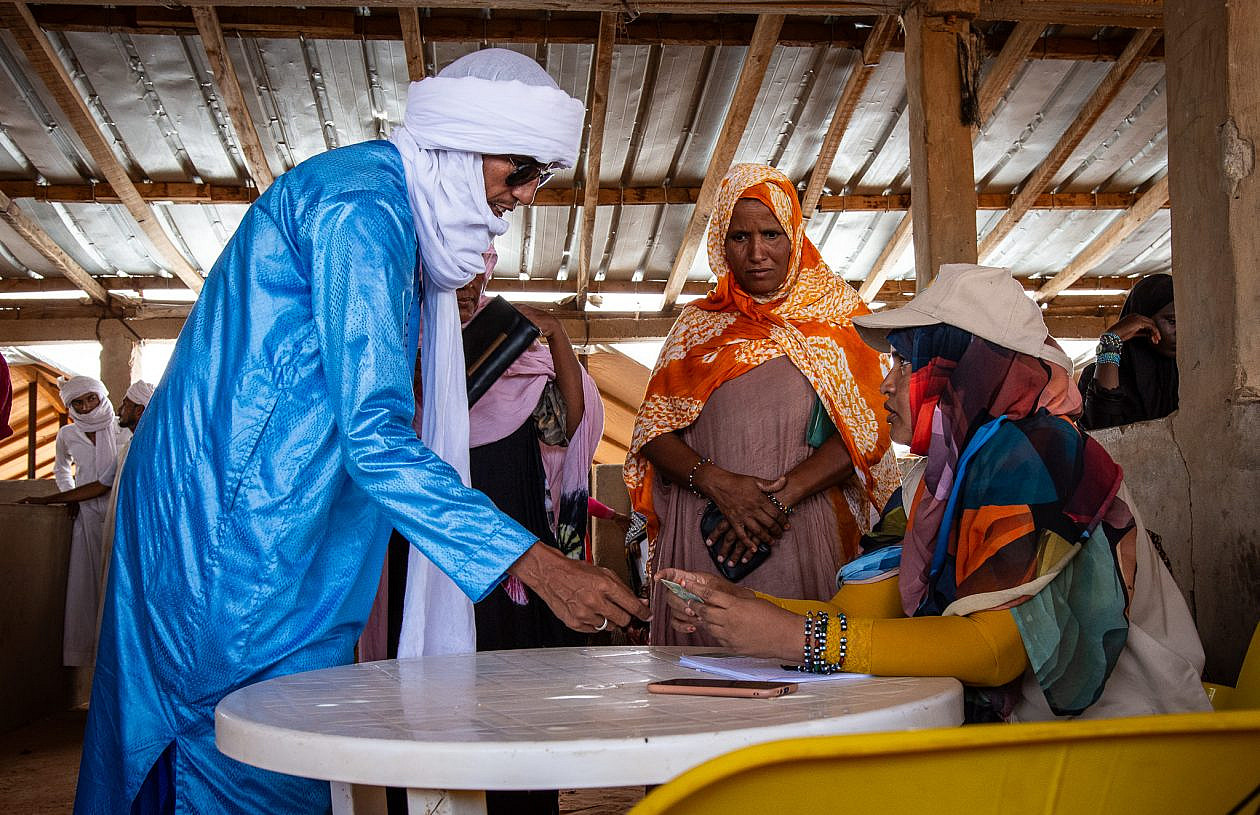
Testimony from Abdoul Aziz Ag Mohamed El Ansari, President of the Coordination of young people from the Mbera camp
« Awareness-raising meetings are extremely important. Tekavoul invites people to change their behaviour and be more productive. The meetings facilitate the chain of communication between Tekavoul and beneficiaries, and the rational use of assistance. The programme uses household-related information to find out what households really need and to prioritise their needs.
Tekavoul draws the attention of the other partners to the need for a follow-up or new mapping of household vulnerability. This involves raising awareness, changing behaviour and monitoring the most vulnerable households.
This project has made a considerable contribution to the economic life of the families here in the Mbera camp. The cash transfer brings change in a number of areas: household food, family hygiene and children’s clothing. Some families even use this money to set up tontines and form small economic interest groups. The mothers try to save a small amount of money together, which serves as capital for the community association. »
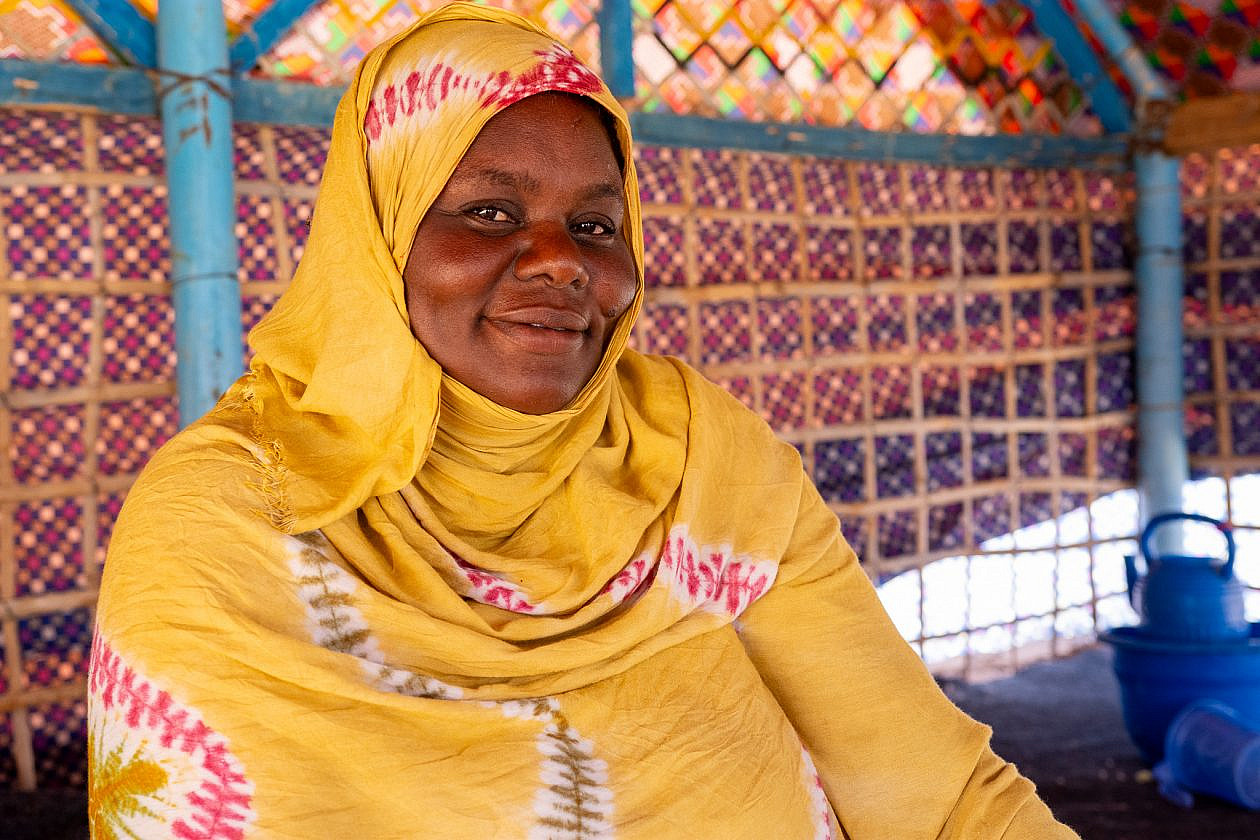
Testimony of Aiché Mint Baaba, beneficiary of the Tekavoul project in Nema
« I have 9 children to support and I’m unemployed. I started hosting people I knew in Mali who fled because of the war. They came to live here with me. I share the food, and we eat together. Sometimes I give them dry bread, which they crush and give to their children to eat. My children sell mint to bring home a bit of money. With the few pennies I earn, I buy beans, rice, vegetables…
Tekavoul has improved our situation. Our diet is better and now I can buy on credit from the shopkeeper and as soon as I get the money I pay off my debts. »
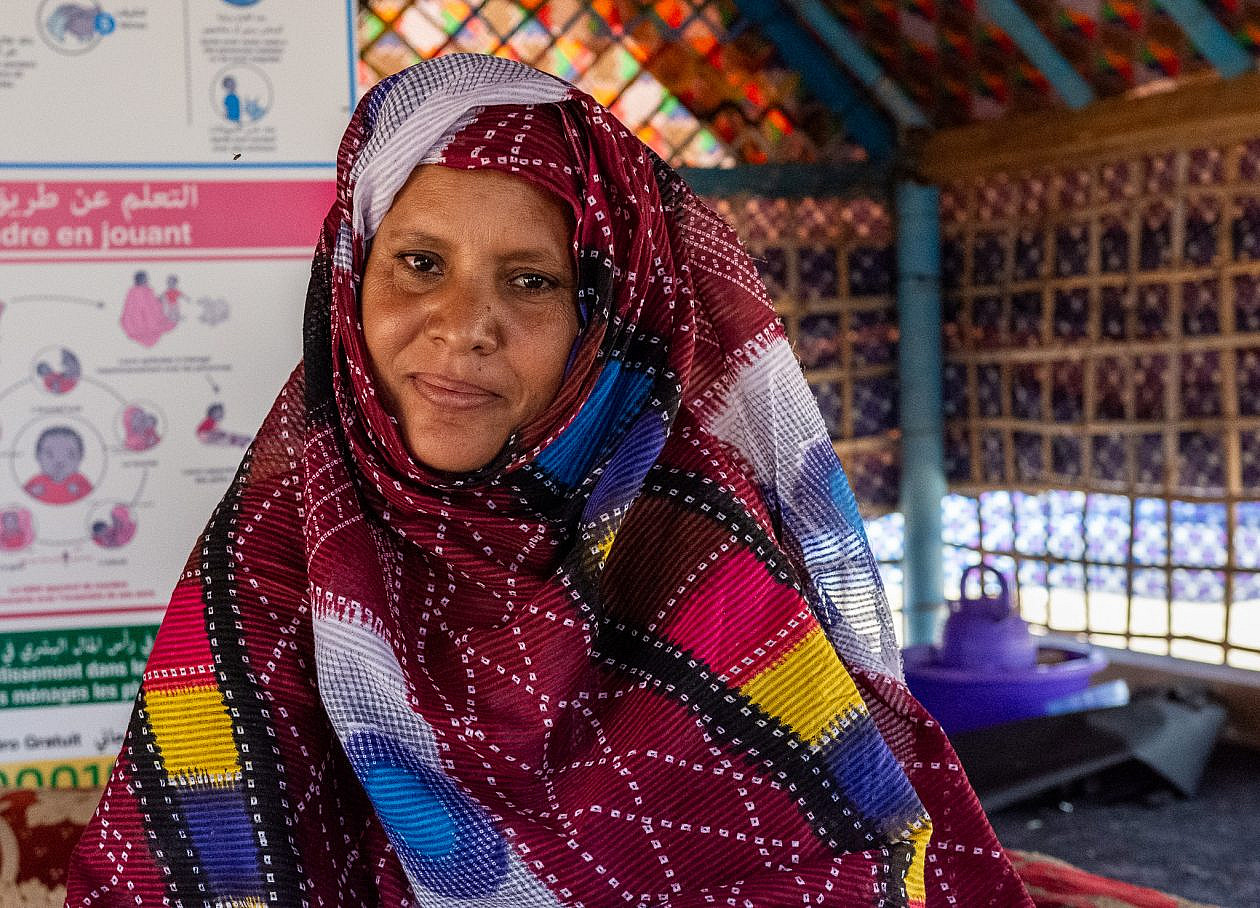
Testimony of Mariama Moussa, President of the Adala 3 neighbourhood, Nema
« The project started in our neighbourhood and supports beneficiaries who were living below the poverty threshold. These women are often heads of households, sometimes they are responsible for orphans or children with disabilities. Thanks to the assistance provided by the project, their living conditions have improved and we want to see this continue. Cash transfer helps them settle their debts. They have hope now, because before the project they had no income. Today, their diet has changed. They can buy beans and meat and eat more healthily.
As a neighbourhood leader, I am one of those who have taken part in the meetings since the Tekavoul recording began. Personally, I’m not a beneficiary, but it’s a pleasure to see my neighbours and vulnerable people benefiting from this programme.
I hope that Tekavoul will be able to increase the number of beneficiaries. There are people in need with chronic illnesses and we are very far from the city. We have to hire expensive cars to evacuate patients. An ambulance requires a lot of work to evacuate a patient, and someone in a state of emergency cannot wait… It is important to give the most vulnerable people the opportunity to receive treatment, as they don’t have the means to be evacuated.
I would like Tekavoul to increase the amount of cash transfers or support the creation of projects for women. They want to be entrepreneurs and are ready to work. »
The Sahel Alliance members’ commitment to adaptive social protection
An adaptive social protection system makes it possible to overcome immediate shocks and channel funds to those affected by shocks in a timely manner. Such a system also makes it easier to prepare for future shocks. At their 4th General Assembly, Alliance members agreed to increase their collective commitment to three strategic priorities.
One of these priorities is resilience to shocks, particularly through support for adaptive social protection systems. The involvement of Sahel Alliance members in the Sahel Adaptive Social Protection Programme (SASPP) has provided a kind of laboratory for adaptive social protection systems. The Sahel countries are pioneers in the development of adaptive social protection systems, even if there is still a long way to go in terms of coverage, financing, and digitisation.
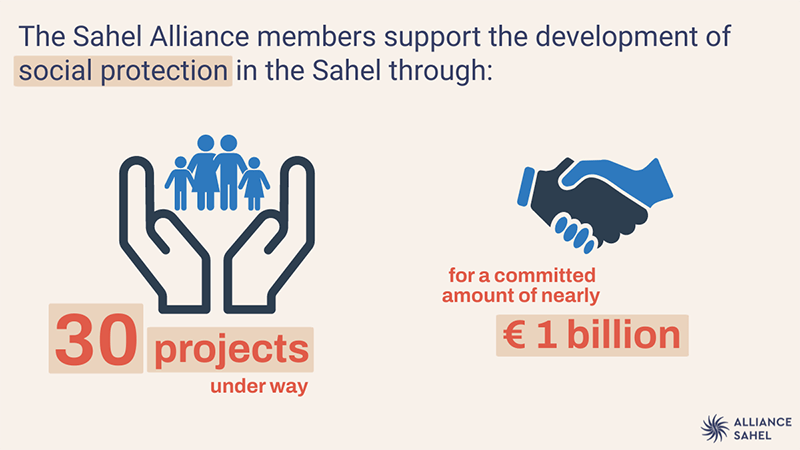
Pictures: Aude Rossignol/Alliance Sahel
Go further

